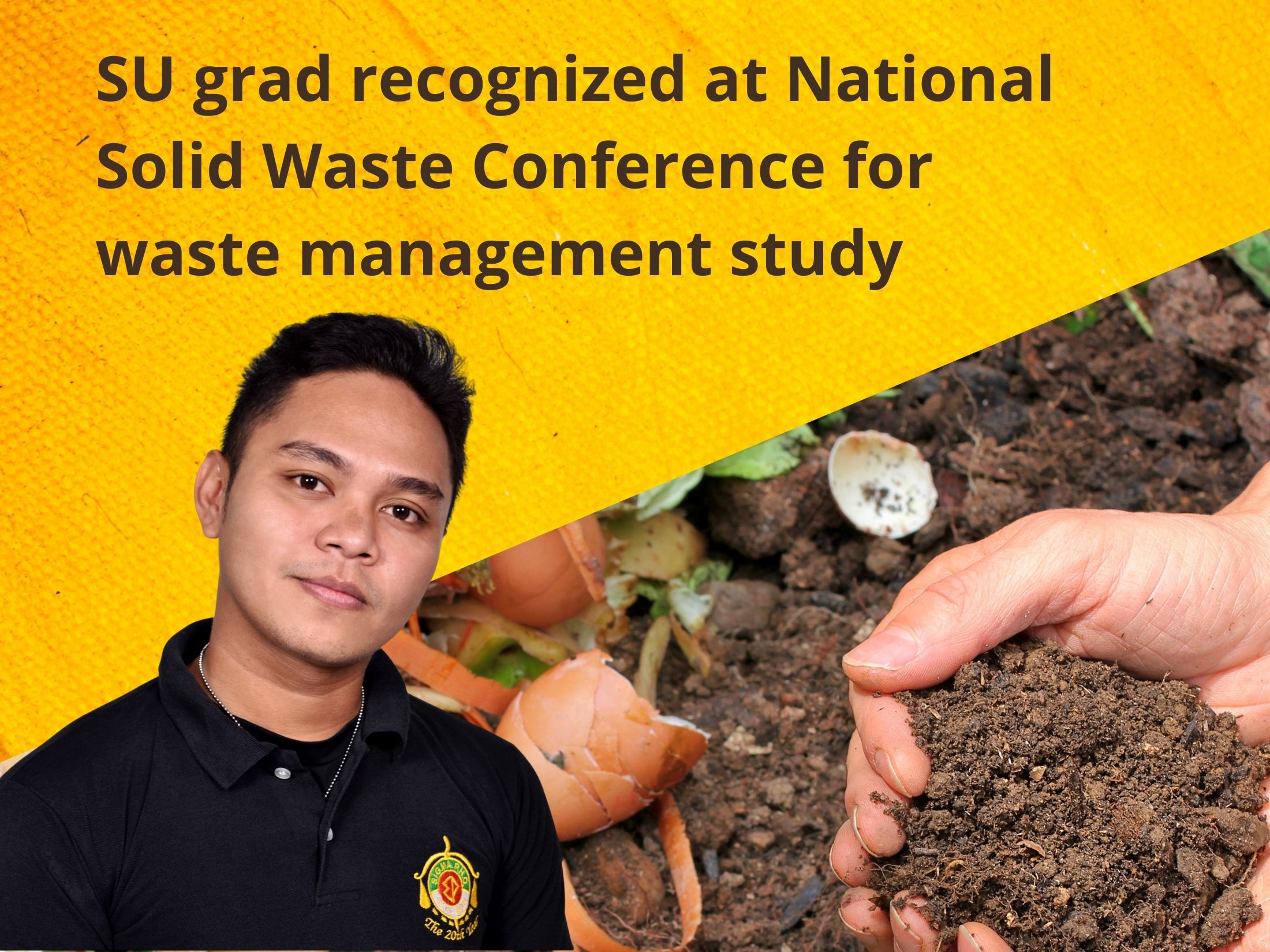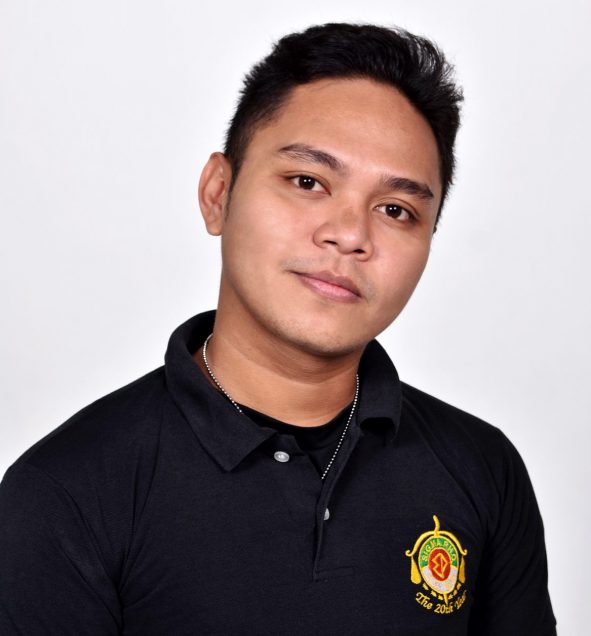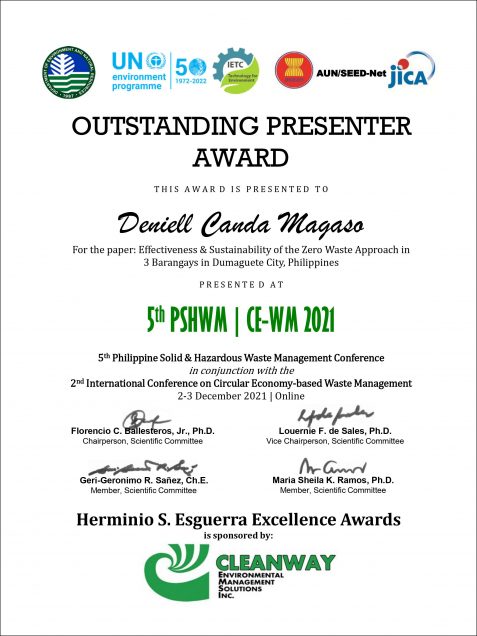
SU grad recognized at National Solid Waste Conference for waste management study
Deniell Magaso, a recent MS Environmental Policy graduate of Silliman University, was named one of three best presenters out of about 70 presenters at the joint 5th Philippine Solid & Hazardous Waste Management Conference and 2nd International Conference on Circular Economy, held via Zoom on December 2-3, 2021.

Magaso’s presentation was on the “Effectiveness and Sustainability of the Zero Waste Approach in Three Barangays in Dumaguete City, Philippines.” The presentation, based on his Master’s thesis, compared the awareness, practices, and commitments of residents in barangays Bantayan, Lo-oc, and Piapi before and after the implementation of Mother Earth Foundation’s Zero Waste approach in the three barangays.

Zero Waste is defined as the conservation of all resources by means of responsible production, consumption, reuse, and recovery of products, packaging, and materials without burning, and with no discharges to land, water, or air that threaten the environment or human health. In his presentation, Magaso first reviewed the successes of Zero Waste cities in the United States and Europe.
Using a survey of about a hundred randomly selected residents in 2018 and again in 2020-2021, Magaso found many significant improvements in awareness, practices, and commitments coupled with a few declines among residents as a result of the Zero Waste approach.
Magaso also found significant diversion rates of about 75%, 17% and 50% in Lo-oc, Piapi, and Bantayan, respectively. This meant that that much waste was diverted away from the dumpsite through proper segregation at source, recovery at the materials recovery facility, recycling, and composting. The original law requires 25% diversion in the first five years of the Act and increases every three years.
Based on interviews of LGU officials and waste workers, Magaso’s research also showed that all three barangays were in compliance with almost all the requirements under the Ecological Solid Waste Management Act (Republic Act 9003) due to the Zero Waste program, except in a few areas not under the control of the barangay.
“The Zero Waste approach is an important tool for barangays to significantly reduce their waste and comply with RA 9003,” concluded Magaso. His presentation, attended online by an international audience, provided further evidence of the value of the Zero Waste approach worldwide.
The Best Presenter was selected by a vote of the participants and the conference’s scientific committee. Silliman University’s Magaso shares the award with Dr. Reynaldo Ramos, Associate Professor at Romblon State University, and Engr. Ma. Elena Carag, an instructor at the University of Batangas.
In the Philippines, Mother Earth Foundation’s Ten-Step Zero Waste approach involves green profiling, waste assessment and brand audits, multi-sectoral consultations, establishment of the barangay solid waste management committee, formulation of a 10-year plan, development of systems and collection schedule, building decentralized materials recovery facilities, information and education campaigns, a dry-run of the system, full implementation, monitoring, and continuous enforcement.
The Zero Waste work in Dumaguete is a collaboration of War on Waste (WOW)-Break Free From Plastic Negros Oriental, the three barangay LGUs, Mother Earth Foundation, and GAIA with funding from the Zero Waste Cities Project in the Philippines. The work began in 2018.
(Story by Dr. Jorge Emmanuel, Silliman University Institute for Environmental and Marine Sciences faculty member)


